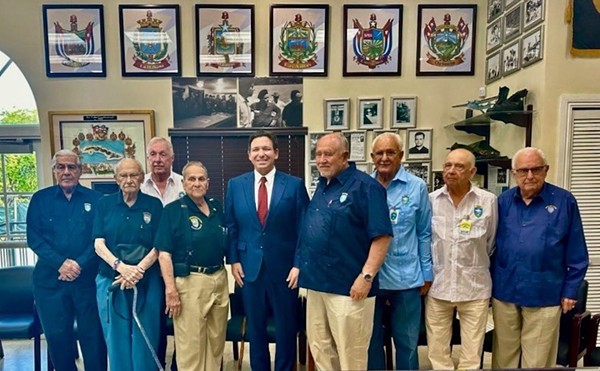DARPA came up with one change — they gave it a new name. Right-to-privacy advocates won't have Total Information Awareness to kick around any more. Conceding that the original name may have freaked out many Americans who hold dear the right to privacy, the Pentagon re-christened the project the "Terrorism Information Awareness" program — a name DARPA hoped would silence the critics.
According to the TIA website, "The goal of the TIA program is to revolutionize the ability of the United States to detect, classify and identify foreign terrorists — and decipher their plans — and thereby enable the U.S. to take timely action to successfully preempt and defeat terrorist acts."
"While it's not even clear if the technology exists to make TIA work," Cynthia Webb pointed out at washingtonpost.com, "the Pentagon is already dedicating serious cash to the endeavor: $9.2-million is budgeted for the program this year; $20-million next fiscal year and $24.5-million in 2005."
The cosmetic changes by DARPA may not have been enough to save TIA. The Senate recently denied all funds for the Terrorism Information Awareness program.
Snipping Operation TIPS
Last year, the Department of Justice, in concert with several other agencies, was on the cusp of launching Operation TIPS (the Terrorist Information and Prevention System), a project that aimed to enlist one-million workers to act as extra eyes and ears for the president's war on terrorism. A wave of negative pre-launch publicity from privacy advocates, civil libertarians, liberal and conservative legislators and newspaper editorialists forced the government to moonwalk on TIPS.
A message was quickly posted at the Operation TIPS website saying that the government had "never intended" for workers to call the hotline for "anything other than publicly observable activities." Expressing concern that it wished to "safeguard against all possibilities of invasion of individual privacy," the Justice Department claimed that the hotline number would "not be shared with any workers, including postal and utility workers, whose work puts them in contact with homes and private property."
That didn't satisfy the critics and in July 2002, Rep. Dick Armey (R-TX) introduced legislation banning Operation TIPS. Ultimately, TIPS was excluded from the final version of the Homeland Security Act.
Eliminating TIPS, however, didn't mean an end to the government efforts to involve ordinary citizens in the defense of the homeland.
Talon: The son of TIPS?
In early May, Deputy Secretary of Defense Paul Wolfowitz "directed the heads of military departments and agencies" to begin creating a database that would contain "raw, non-validated" reports of "anomalous activities" within the U.S., Wired News reported in late June. This new domestic spying system, called Talon, will develop a "mechanism to collect and rapidly share reports 'by concerned citizens and military members regarding suspicious incidents.'"
Wolfowitz, one of the neo-conservative architects of the Bush Administration's pre-emptive strike doctrine and a longtime advocate of invading Iraq, will oversee Talon's development. (Wolfowitz also was recently handed another new task by Secretary of Defense Donald Rumsfeld — the authority to decide which terrorist captives should be tried by military tribunals.)
Details about Talon — first reported at Kitetoa, a French security website — remain sketchy. Peter S. Probst, a former Pentagon terrorism expert and currently a terrorism consultant and program director for the Virginia-based Institute for the Study of Terrorism and Political Violence, thinks the Talon program is necessary to protect Department of Defense property and personnel. "It would be derelict not to keep track of anomalous incidents. This is just common sense," Probst told Wired News.
Lee Tien, of the Electronic Frontier Foundation, said that Talon raises red flags similar to those raised by Operation TIPS. "What is the value in accelerating the speed of the rumor mill?" Tien told Wired News. "You have a wealth of really weak data that ends up percolating its way through the system. How will they ensure that there's no opportunity for people's dossiers to become tainted?"
It's unclear "whether Talon reports would become part of the Pentagon's controversial Terrorism Information Awareness (TIA) program, or whether the data would be shared with other government agencies, such as the Department of Homeland Security," reports Wired News. The Talon system "appears to have grown out of Eagle Eyes, an antiterrorism project developed by the Air Force Office of Special Investigations. Launched in April 2002, Eagle Eyes is a neighborhood watch-type program that 'enlists the eyes and ears of Air Force members and citizens in the war on terror,' according to the Office of Strategic Influence (OSI) website."
LifeLog
Then, there is LifeLog. In late-May, Defense Tech's Noah Schactman reported that the same folks at DARPA who had designed the Internet and given the world the global positioning satellite system (GPS) had come up with "a stunningly ambitious research project designed to gather every conceivable bit of information about a person's life, index all the information and make it searchable." It is called LifeLog, and it aims to catalogue every step you take and every move you make.
















